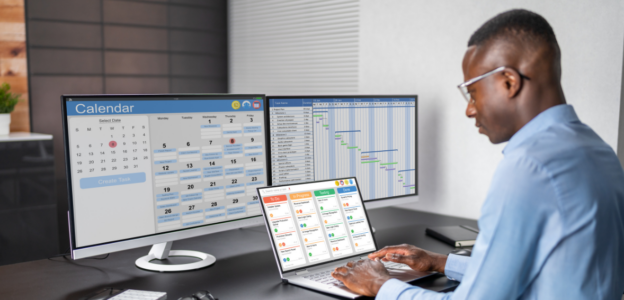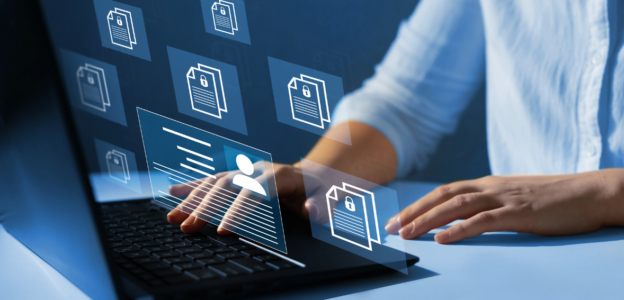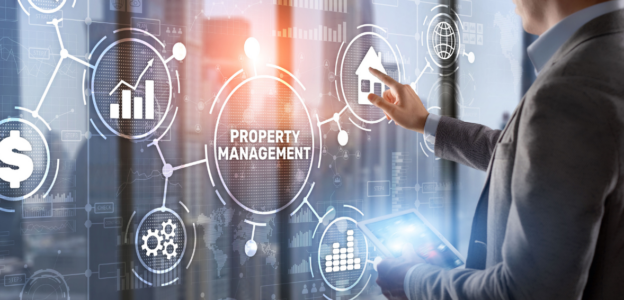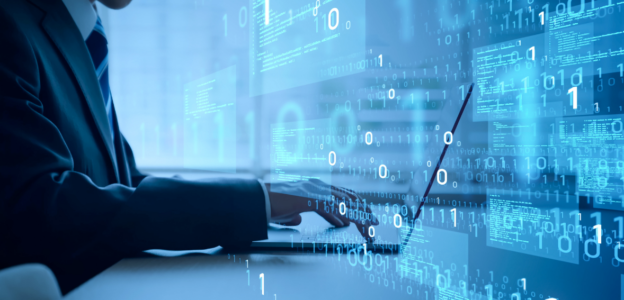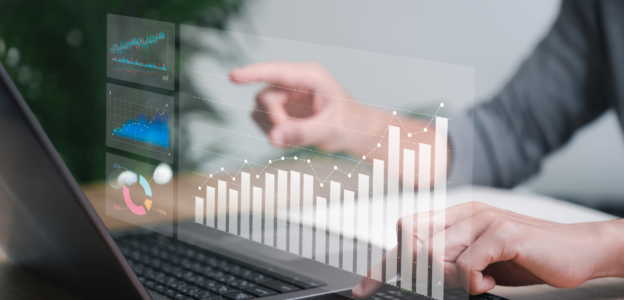In the competitive landscape of property management in Australia, leveraging technology is crucial for enhancing efficiency and service delivery. Free property management software Australia has emerged as a game-changer, offering robust solutions without the financial commitment of traditional software.
These platforms cater to the diverse needs of property managers, providing tools that streamline operations, improve tenant relations, and optimize workflows. This article delves into the top free property management software Australia, highlighting their unique features and how they can transform property management practices. From automating routine tasks to facilitating better communication, these tools are essential for modern property management professionals seeking to stay ahead in the industry.
Best Property Management Software Systems Features in Australia

Free Property management software in Australia have revolutionized the real estate sector by incorporating a multitude of features that streamline operations and enhance tenant relations. Here’s a closer look at the key features these platforms offer:
Real estate lead generation: Modern software aids in capturing and nurturing leads, ensuring a steady flow of potential tenants.
A helping hand for enquiry management: These systems manage inquiries efficiently, ensuring no prospective tenant queries go unanswered.
Save time on screening and assessing applicants: Automated screening processes reduce the time and effort involved in vetting potential tenants.
Physical key management becomes easy: Tracking and managing physical keys is simplified with digital check-in and check-out systems.
Helping tenants get utilities services up and running: Software can facilitate the setup of essential services like electricity and water as soon as tenants move in.
Say goodbye to incomplete tenancy application forms: Applications are streamlined with prompts for required information, reducing the incidence of incomplete forms.
Automating your property listings: Effortlessly post and update listings across multiple platforms with a few clicks.
Ensuring timely lease renewals: Automated reminders and renewal processes ensure leases are renewed on time, enhancing tenant retention.
Handling maintenance issues promptly: Quick ticketing systems for maintenance requests help resolve issues faster, improving tenant satisfaction.
Help tenants smoothly accomplish the vacate process: The software offers checklists and procedures to ensure tenants leave the property in good condition.
Select trustworthy tenants: Advanced algorithms and data analytics help identify the most reliable ones.
One way to simplify life for agents is by using integrated real estate (IRE) platforms, which offer a unified solution that simplifies various aspects of property management.
Reach out to great prospective tenants with early bird alerts: Notify registered prospective tenants of new listings before they go live to the public.
One subscription for all operations: Some platforms offer comprehensive services under a single subscription, covering everything from tenant screening to lease management.
Top 7 Property Management Software in Australia
PropertyMe
PropertyMe’s array of features combined with flexible pricing makes it an attractive option for property management businesses of all sizes, looking to enhance efficiency and property oversight.
Here’s a closer look at its functionalities and pricing options:
Dashboard: PropertyMe features a comprehensive dashboard that provides an at-a-glance view of all property management activities, helping users monitor everything from financials to maintenance tasks efficiently.
Owner Access and App: Owners can access real-time data about their properties through a dedicated app, enhancing transparency and communication between property managers and owners.
Paperless Entry Inspections: The software supports paperless entry inspections, allowing property managers to conduct and record inspections digitally, thus reducing the need for physical paperwork and enhancing accuracy.
Document Management: PropertyMe offers robust document management capabilities, enabling users to store, manage, and share documents securely online.
Notifications and Alerts: Automated notifications and alerts keep all stakeholders updated about important events or actions required, improving response times and operational efficiency.
Tasks & Templates: Customizable tasks and templates simplify routine property management operations, ensuring consistency and saving time.
Mobile Apps: With mobile applications for both iOS and Android, PropertyMe ensures that property management tasks can be handled on the go, increasing flexibility for managers.
Lease Renewals: The system automates and manages the lease renewal process, making it seamless and minimizing vacancies.
Pricing Tiers
Basic: Priced at $1.10 + taxes per property per month, billed in 100-property increments, suitable for smaller portfolios.
Standard: At $1.35 + taxes per property per month, this plan is designed for mid-sized portfolios and offers additional features.
Premium: Costing $1.80 + taxes per property per month, this tier caters to large property management firms needing extensive management tools and capabilities.
Buildium
Buildium is a comprehensive free property management software Australia tailored to simplify the intricacies of managing rental properties.
Here’s a detailed look at its key features and pricing plans:
Property accounting: Buildium provides robust accounting features that handle all financial aspects of property management, including tracking rent payments, expenses, and generating financial reports.
Collect rent online: The platform enables property managers to set up secure online rent collection, making the transaction process convenient for both managers and tenants.
Maintenance requests: Tenants can submit maintenance requests directly through the platform, allowing managers to track, prioritize, and resolve issues efficiently.
Resident center: A dedicated portal where residents can communicate with managers, view lease documents, and make payments, enhancing tenant satisfaction and engagement.
Rental listing syndications: Automatically syndicates listings to top rental sites, increasing property visibility and reducing vacancy rates.
Tenant screening: Integrates comprehensive tenant screening processes, including background checks and credit reports, to ensure reliable tenant placement.
Property management website: Offers tools to create a professional website for your property management business, helping to attract new clients and serve existing ones.
Online leasing: Facilitates the leasing process with electronic signatures and storage, streamlining paperwork and reducing turnaround times.
Growth for property managers: Provides analytics and tools aimed at helping managers scale their operations and increase their portfolios.
Open API: Supports integration with other services, enhancing functionality and customizability.
Pricing Tiers
Essential: Starting at $55/mo, ideal for new and small property managers.
Growth: Starting at $174/mo, designed for growing businesses seeking more advanced features.
Premium: Starting at $375/mo, offers full functionality for large-scale operations seeking to optimize every aspect of property management.
Renti
Renti is a versatile free property management software in Australia, designed to simplify the management of rental properties with a focus on efficiency and user-friendly features. It caters to landlords and property managers who seek an intuitive platform for handling various aspects of property management.
Here’s a closer look at its key features:
Automated rent collection: Renti provides an automated rent collection system, allowing property managers to set up recurring payments and track transactions with ease. This feature reduces administrative work and ensures timely rent collection.
Online tenant applications: The platform streamlines the application process by enabling prospective tenants to apply online. This feature includes document uploads, background checks, and instant application reviews, making it easier to manage and process applications.
Maintenance requests: Tenants can submit maintenance requests directly through Renti’s platform. Property managers can track these requests, assign tasks, and communicate with tenants about the status of their requests.
Lease management: Renti offers tools for creating, managing, and renewing leases online. Electronic lease signing and storage help in reducing paperwork and simplifying lease management.
Expense tracking: The software includes built-in expense tracking features, allowing property managers to record and categorize property-related expenses for better financial management.
Tenant communication: Renti facilitates efficient communication between property managers and tenants through its messaging system. This feature helps in addressing inquiries, sending reminders, and maintaining clear communication channels.
Pricing tiers
Renti offers a free version with essential features for basic property management needs. For advanced functionalities and enhanced support, premium plans start at approximately $30 per month. These plans provide additional tools and integrations, catering to more comprehensive property management requirements.
Smoobu

Smoobu is a dynamic free property management software Australia designed to cater to the needs of vacation rental and property managers in Australia. It offers a comprehensive suite of tools aimed at streamlining property management, booking processes, and guest communication.
Here’s a detailed look at its key features:
Centralized booking management: Smoobu provides a unified platform for managing bookings across multiple channels, including major booking sites like Airbnb, Booking.com, and VRBO. This centralization helps prevent double bookings and simplifies reservation management.
Automated messaging: The software includes automated messaging features that allow property managers to send pre-set messages to guests, including booking confirmations, check-in instructions, and post-stay thank you notes. This automation enhances communication efficiency and guest satisfaction.
Calendar synchronization: Smoobu offers real-time calendar synchronization, ensuring that all booking calendars are updated automatically across various platforms. This feature helps in maintaining accurate availability and preventing booking conflicts.
Revenue management: The platform provides tools for tracking revenue, analyzing booking trends, and optimizing pricing strategies. Property managers can set dynamic pricing rules to maximize occupancy and revenue based on market conditions.
Guest reviews and feedback: Smoobu facilitates the collection of guest reviews and feedback directly through the platform. This feature helps property managers monitor guest satisfaction and make improvements based on feedback.
Mobile access: The software includes mobile access, allowing property managers to manage bookings, communicate with guests, and view important information from any device.
Pricing tiers
Smoobu offers a free plan with basic features for small property managers. For access to advanced features and additional properties, paid plans start at approximately $25 per month. These plans provide enhanced functionality and support, making it a suitable choice for both small and larger property management operations.
Hostaway
Hostaway is an all-in-one free property management software Australia tailored for vacation rental managers and owners in Australia. It combines advanced automation, integrated tools, and user-friendly features to streamline property management, booking processes, and guest interactions.
Here’s a detailed look at its key features:
Unified dashboard: Hostaway provides a centralized dashboard that integrates with various booking platforms like Airbnb, Booking.com, and Expedia. This unified view helps property managers oversee bookings, manage availability, and track performance metrics from one location.
Automated communication: The platform features robust automation tools for guest communication. Users can set up automated messages for booking confirmations, check-in instructions, reminders, and post-checkout follow-ups, ensuring consistent and timely communication with guests.
Channel management: Hostaway’s channel management feature synchronizes availability and rates across multiple booking channels in real-time. This reduces the risk of double bookings and helps maintain accurate listings across various platforms.
Pricing optimization: The software includes dynamic pricing tools that adjust rental rates based on demand, market trends, and seasonal factors. This feature helps maximize revenue and occupancy rates.
Guest portal: Hostaway offers a dedicated guest portal where guests can access booking details, check-in instructions, and house rules. This self-service portal enhances guest experience and reduces the need for manual interactions.
Reporting and analytics: The platform provides comprehensive reporting and analytics tools, allowing property managers to track financial performance, booking trends, and operational metrics. These insights support data-driven decision-making and business optimization.
Mobile app: Hostaway’s mobile app allows property managers to manage bookings, communicate with guests, and access important information on the go.
Pricing tiers
Hostaway offers a free trial for users to explore its features. Subscription plans start at around $50 per month, with pricing tiers based on the number of properties and required features. This makes Hostaway a flexible solution for property managers ranging from small to large-scale operations.
SimplifyEm
SimplifyEm is a comprehensive property management software designed for residential property managers and landlords. This user-friendly platform offers a suite of features that streamline rental management processes, making it ideal for small to medium-sized property management operations.
Here’s a detailed look at its key features:
Tenant and lease tracking: SimplifyEm allows users to efficiently manage tenant information, lease agreements, and renewal dates. This feature ensures that property managers stay organized and compliant with lease terms.
Online rent collection: The platform supports online rent payments, enabling tenants to pay their rent conveniently via credit card or bank transfer. This reduces late payments and simplifies the collection process.
Maintenance management: Users can create and track maintenance requests, ensuring timely resolutions. Tenants can submit maintenance issues online, improving communication and satisfaction.
Accounting tools: SimplifyEm includes robust accounting features, such as income and expense tracking, generating financial reports, and integration with QuickBooks. This simplifies financial management and tax preparation.
Tenant screening: The software provides tools for screening potential tenants, including credit and background checks, helping landlords select reliable renters.
Customizable reports: Users can generate various reports tailored to their needs, such as income statements and occupancy rates, aiding data-driven decision-making.
Mobile access: SimplifyEm offers mobile compatibility, allowing property managers to access information and manage properties on the go.
Pricing Tiers
SimplifyEm offers a free trial for new users. Subscription plans start at approximately $25 per month for up to 10 units, with tiered pricing for larger portfolios. This affordability makes it an appealing choice for landlords and small property management firms.
Innago

Innago is a user-friendly property management software designed to simplify the complexities of managing residential properties. Tailored for landlords and property managers, Innago offers an array of powerful tools that enhance operational efficiency and tenant interactions.
Here’s a detailed look at its key features:
Tenant management: Innago provides robust tenant management capabilities, allowing users to easily track tenant information, lease agreements, and important dates. This feature ensures that property managers stay organized and compliant with rental agreements.
Online rent collection: The platform supports seamless online rent collection, enabling tenants to pay their rent securely via credit card or bank transfer. This feature reduces late payments and simplifies financial transactions.
Maintenance tracking: Innago includes a maintenance tracking system, allowing tenants to submit requests directly through the platform. Property managers can prioritize and resolve these issues efficiently, enhancing tenant satisfaction.
Tenant screening: The software offers integrated tenant screening options, including background and credit checks, helping landlords make informed decisions when selecting tenants.
Document storage: Innago allows users to securely store and manage essential documents online, such as leases and maintenance records, improving accessibility and organization.
Automated communication: The platform automates essential communications, including reminders for rent due dates and lease renewals, ensuring consistent and timely interactions with tenants.
Mobile access: Innago’s mobile-friendly design allows property managers to manage their properties on-the-go, enhancing flexibility and responsiveness.
Pricing Tiers
Innago offers a free plan with basic features for up to 10 units. For larger portfolios, pricing starts at approximately $1 per unit per month, making it an affordable option for property managers seeking comprehensive management solutions.
Conclusion
The landscape of property management in Australia is being transformed by the availability of free software solutions that cater to a variety of needs. These platforms not only enhance operational efficiency but also improve tenant relations through automation and streamlined communication.
From PropertyMe’s robust document management and notifications to SimplifyEm’s comprehensive tenant and lease tracking, each software offers unique features tailored to the specific challenges of property management. Furthermore, tools like Buildium and Renti simplify financial tracking and maintenance management, ensuring landlords can focus on growing their portfolios.
As property managers increasingly adopt these technologies, they gain the competitive edge needed in a dynamic real estate market. With affordable pricing tiers and free trials, these solutions make it easier for both small landlords and larger management firms to optimize their operations and enhance tenant satisfaction, ultimately contributing to a more efficient property management ecosystem in Australia.
Frequently Asked Question
These software solutions can manage various property types including residential, commercial, and vacation rentals. They are designed to cater to the diverse needs of property managers across different property sectors.
Yes, many property management software options offer integration capabilities with other tools such as accounting software, CRM systems, and maintenance management platforms to streamline operations.
Free versions of property management software often come with limitations such as restricted features, fewer integrations, or a cap on the number of properties you can manage. Premium versions typically offer more comprehensive features and support.

